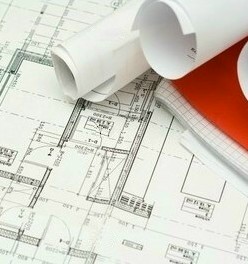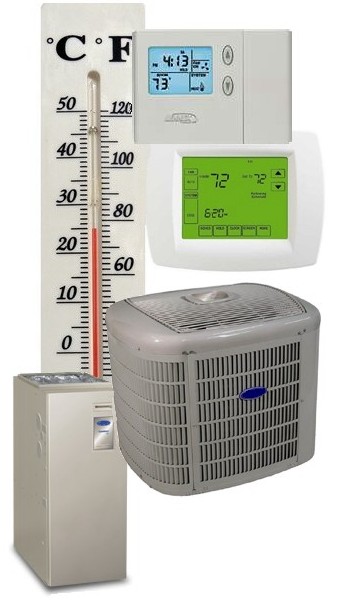Heat Systems
A house, no matter how great, is not complete without a comfortable heating system. A house's heating system is an important part of a house's design and should provide efficient, comfortable heat. There are a number of heating systems available which follows.
Forced Air Heating
This heating system supplies warm air from a fuel burning unit or furnace that is forced through a duct system by a blower, distributing the heat throughout a house or structure. A furnace uses the duct system to both draw the colder air from individual rooms, heat the air and redistribute the heated air back to these same rooms. Air flows through an air filter before it comes back into the furnace from the return duct, because of that, most of the fugitive air borne dirt and dust is filtered out to protect the furnace from any damage to its working parts.
Iimportant points to consider with a forced air heating unit, quiet operation, increased air circulation, more consistent house temperatures, improve indoor air quality.
Electrical Heating Units
An electrical heating system uses electricity as the heat source, and currently it is a less popular heating system than forced air. Basically, electricity is converted to heat. It is silent and is cost efficient, requiring minimal maintenance. Drawbacks include in times of low humidity, humidification is usually necessary because the electric heat is a very dry heat and the electrical heating parts become hot and can create a danger to children. Cost efficiency will depend on the electric rates of your electrical utility supplier.
Heat Pumps
There are two basic types of heat pumps, air to air, and geothermal. They both function as central air conditioners.
a) Air Source Heat Pumps
The units use air to deliver both heat and coolness, the most popular is the split system heat pump, the major part of it is located outdoors, another fan and heat exchanger coil is located inside the house.
This unit is fairly quiet, operates cleanly, and is very safe. But in extreme cold weather, supplemental heating may be needed.
b) Geothermal Heat Pumps
Geothermal heat pumps provide an efficient heating and cooling option throughout any season. These units provide heat transfer solutions which travel through buried piping, use the natural thermal mass of the earth to withdraw heat in a time of cold weather, and transfer heat into cold air during hot weather. A geothermal heat pump does not create heat, but rather moves it from inside out or outside in.
Radiant Floor Heating Systems
The radiant floor heating provides heating through the floor. It is a cost-effective, quiet system which provides heat by warm water piping, or electric wiring floor panels. Often ceramic tile is used in tandem with radiant heating systems. These systems are not visible, energy-efficient, and does not dry out the air like forced air systems.
Let us assist you in your renovation or new build needs.



